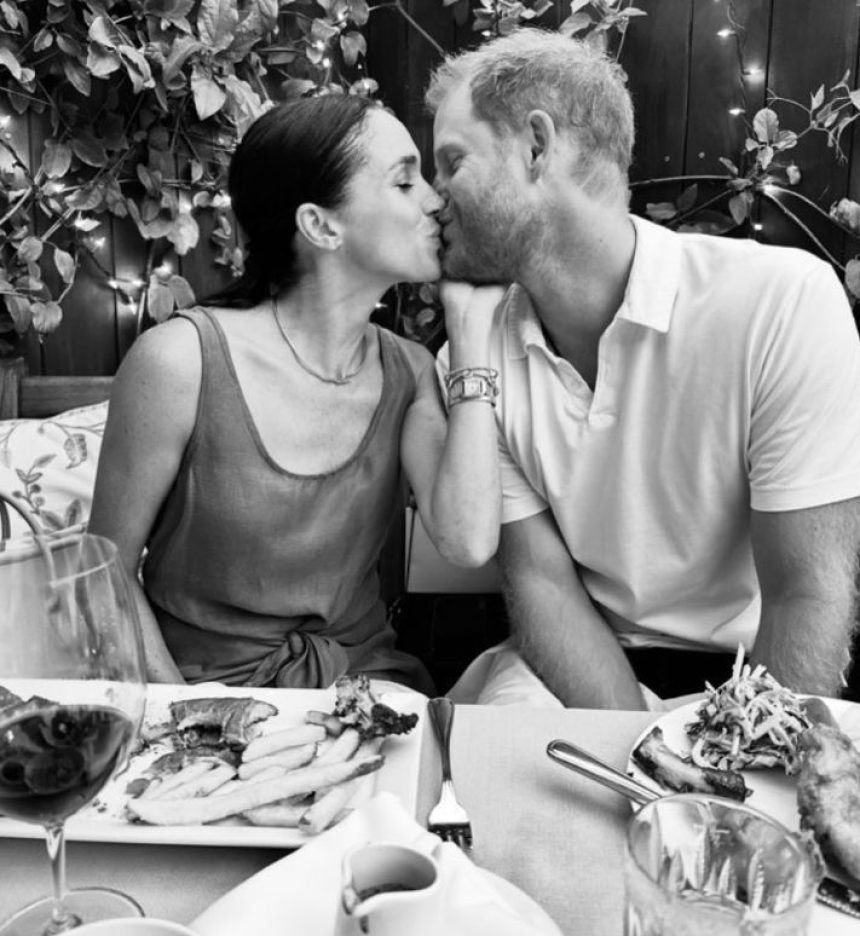Meghan Markle surprised her followers on Valentine’s Day when she gave a rare insight into her marriage with Prince Harry.
It wasn’t the emotional caption, in which she referred to her husband as “my love” and “my Valentine”, that piqued our interest, but instead, Meghan’s admission for the food she and Prince Harry indulge in.
The photo showed the Duke and Duchess of Sussex tucking into a hearty meal, with Meghan signing off her post: “I will eat burgers and fries and fish and chips with you forever.”
Her decision to highlight her love of junk food is interesting, as the native Californian has always had a healthy approach to eating, telling Best Health Magazine in 2015: “I’m conscious of what I eat. I try to eat vegan during the week and then have a little bit more flexibility with what I dig into on the weekends.”
Curious as to the benefits of following a vegan diet, then switching to meat and fish, HELLO! spoke to Raquel Monroy, a nutritionist who specialises in fertility, for her take on Meghan’s ‘flexible’ diet.
“A predominantly vegan diet, when well-balanced, can provide a wealth of nutrients from plant-based foods, including fibre, antioxidants, polyphenols, vitamins and minerals that support overall health,” Raquel begins.
“Many of the benefits of a vegan diet come not from eliminating animal products but from increasing nutrient-dense whole foods such as fruits, vegetables, legumes, nuts and seeds.” She adds that Meghan’s decision to eat meat and fish too isn’t a bad one.
“Incorporating high-quality animal products such as fish or meat occasionally can help ensure adequate intake of essential nutrients such as vitamin B12, iron, and omega-3 fatty acids, which can sometimes be lower in a strict vegan diet. The key is to focus on whole, unprocessed foods.”
DISCOVER: Meghan Markle’s ‘curated and smart’ move as she forges new identity
Meghan went on to tell Best Health: “It’s all about balance. I don’t ever want to feel deprived. I feel that the second you do that is when you start to binge on things. It’s not a diet; it’s lifestyle eating.”
Raquel agrees that flexibility with our diets is helpful, explaining: “A flexible approach to eating allows for a balance between the benefits of a plant-rich diet and the nutritional advantages of animal products.
“It reduces the risk of deficiencies, supports gut health with a diverse range of foods and makes it easier to sustain long-term. Flexibility also allows for personalisation — adjusting dietary choices based on individual health needs, preferences, and ethical considerations — while avoiding the stress of strict dietary rules. The best diet is one that is nutrient-dense, enjoyable, and sustainable for each person’s lifestyle.”
With Meghan’s lifestyle show, With Love, Meghan, set to launch soon, we can’t wait to see how she puts her relaxed diet into practice.








